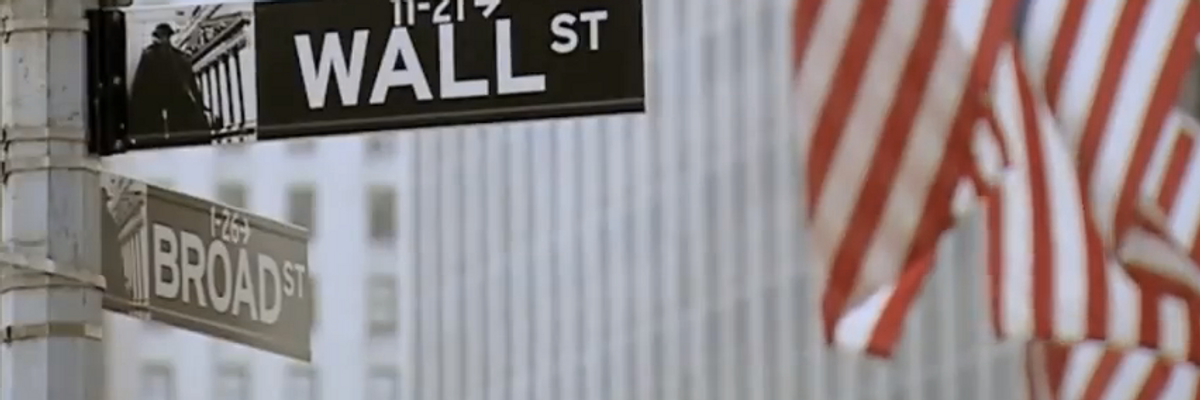On the subject of Wall Street reform, the draft platform released by the Democratic Party reads much more like a Bernie Sanders stadium speech than a Hillary Clinton policy memo. "Democrats will fight against the greed and recklessness of Wall Street," they pledge.
This tough talk is clearly intended to draw in voters who are still feeling the Bern. But it could also be a sign that Wall Street's aversion to Donald Trump has strengthened the Democrats' hand.
Sanders makes Wall Streeters' hair stand on end because of what he wants to do to them directly: break up the big banks, hike their taxes and jail the executives who caused the 2008 crash.
Trump gives Wall Streeters the jitters because of what he might do to them indirectly. Launch a trade war with China! Throw out the immigrants! Whether Trump would ever follow through with such bellicose threats, Oval Office rhetoric of this sort could be enough to keep the markets reeling.
Wall Street hates unpredictability. And in the Republican presidential candidate, we have the very embodiment of unpredictability.
And so with no safe harbor in the Republican Party, Wall Street is once again putting its money on the Democrats. While financial industry donors gave GOP nominee Mitt Romney three times as much as they gave Barack Obama in 2012, Clinton is pulling in far more financial sector bucks than her presumptive GOP opponent. According to the Financial Times, some 5,200 employees of the six largest U.S. banks have donated to her campaign, compared to just 26 who've given to Trump.
The platform draft shows Democrats are willing to bite the hand that feeds them - or at least to say they will. The difference is particularly stark if you compare the Wall Street language in the current draft to the 2012 platform. Back then, the Dems did little more than pat themselves on the back for having passed the 2010 Dodd-Frank financial reform legislation.
Today, they're candidly acknowledging that we still have a long way to go to fix our financial system. And they're quite specific about how they plan to do that.
Declaring that "no bank can be too big to fail," they vow to push through a 21st century version of the Glass-Steagall Act. This Depression-era law separated investment and commercial banking activities so that banks couldn't use depositors' savings to gamble in the financial casino. The Bill Clinton administration repealed this protection in 1999.
To provide an alternative to the big banks and the predatory payday lenders, the platform comes out in favor of providing some basic financial services through the postal system.
The draft also expresses support for "a financial transactions tax on Wall Street to curb excessive speculation and high-frequency trading, which has threatened financial markets." This innovative idea was absent from the 2012 platform, and in fact Obama Treasury officials have sided with the industry in opposing it.
Trump has blasted hedge fund billionaires for "getting away with murder" by taking advantage of loopholes that allow them to pay a lower income tax rate than many firefighters and teachers. But the Democratic platform calls for eliminating these loopholes, whereas Trump's tax proposal would have the financiers paying even less.
The Democrats also pledge to put their foot in the revolving door between Wall Street and the financial regulatory agencies. Financial industry executives would be blocked from serving on boards of the 12 regional Federal Reserve banks. And no longer would executives be able to receive golden parachutes if they take jobs in government.
Of course, tough platform talk doesn't necessarily translate into tough action. As Bill Clinton's Labor Secretary Robert Reich put it, a platform is "a relatively easy way for so-called mainstream and centrist Democrats to make progressive Democrats feel included without really changing the status quo or ruffling feathers on Wall Street."
And there's the possibility that Wall Street lobbyists could succeed in watering down this draft before it's finalized and brought to the national convention at the end of the month.
But it's clear that platform drafters felt they could get away with the boldest Wall Street reform plan in many years. Let's hope this toughness doesn't fade away after the election. There should be no safe harbor for narrow, reckless Wall Street interests in either party.
